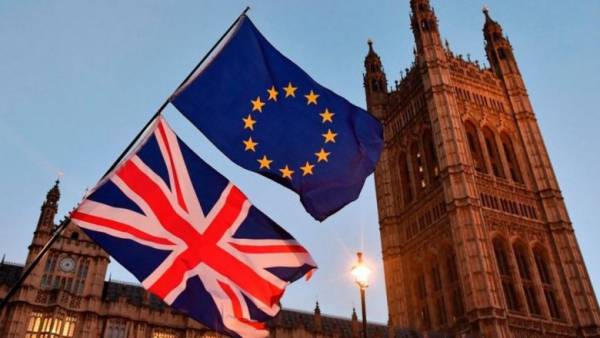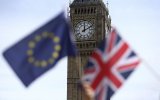100 days before the “breccia”. Britain’s way out of the difficult political crisis
In just over three months before the proposed time of exit from the EU, Britain was in a political crisis of this country in peacetime was not for several decades, and even a couple of centuries. Good for the British politicians way out of this crisis in sight.

Went two-and-a-half years ago to exit the EU, Britain stopped a step away from the door, unable to decide which foot to cross the threshold and to cross it at all.
The Parliament refuses to approve the agreement for withdrawal which was made by the European Union and the British government, but neither in Parliament nor outside of him there is no force able to offer a mutually acceptable alternative solution.
The news In Britain turned against migrants from Europe
In Britain turned against migrants from Europe
British politicians in recent weeks and days are increasingly talking about something drastic, like a second referendum or special election, but they do not guarantee any exit from the crisis or solve “breccia”.
The reason for this is that after four years of failed political maneuvers and two years of negotiations with Brussels divided on the question of “breccia” was and society, and both major parties.
“We are in an unprecedented situation: the Prime Minister led us into the crisis on a national scale”, — said on Monday the leader of the opposition labour party’s Jeremy Corbyn.
A national crisis is an irresponsible opposition that puts party interests above the interests of the British people.Teresa Mypremier Minister and leader of the Conservative party
Politicians from different camps, of course, have different views on who is guilty, but disputes about whether the crisis is or not yet, have not heard.

Someone compares the current situation with the Suez crisis of 1956 that buried the claims of Britain to remain a world superpower. Someone says that it is the hardest in the history of British political crisis of peace.
News Named major threats to the world economy
Named major threats to the world economy
“Britain will be the most severe constitutional crisis in the last 200 years”, — warned in September, when the picture was already quite clear, William Hague — a former leader of the Conservative party and Minister of foreign Affairs.
“I will say the obvious: the country is in crisis […] our reputation as guardians of the great British virtues, common sense evaporates eyes. A nation divided,” — said in mid-December, former Prime Minister, labour’s Tony Blair.
It has become a commonplace to say that “brakcet” — as election trump and other successes lovers of simple slogans is a consequence of the crisis of 2007-2008, or, more broadly, the restructuring of the global economy, where Westerners felt uncertainty and frustration in the existing order of things.
But British policy has added to these external circumstances a fair share of difficulties created by their own hands. The opponents of the “breccia” even saying that the country “has created to itself problems out of the blue”. However, this simplification: the site has not been smooth.Cameron, UKIP and the promise of a referendum
History of the relations of Britain with the EU is long and complicated, but the beginning of the current, acute phase can be determined accurately enough. This is a parliamentary election in may 2015.
Just before these elections the leader of conservatives David Cameron has promised in case of victory to hold a referendum on EU membership.
Moreover, the promise to hold a referendum on such an important issue, Cameron gave on the basis of completely tactical, short-term scale in the history of the country reasons.

The year before the election of British members of the European Parliament very successfully played the populist Party United Kingdom independence (UKIP). In the elections to the House of Commons of the party threatened is not something that the win — conditions of the British electoral system in General, she could hardly count on any appreciable number of seats.
But Cameron feared that UKIP will take away votes from candidates-Tory, and the result will win the labour party. So the Prime Minister has promised in case of victory to take place before the end of 2017 a referendum on EU membership — he hoped to return at least part of voters euroskeptical, “escaped” to UKIP.

“Some citizens are concerned about and wants more serious changes in immigration, more certainty about the state of Affairs in Europe, and these people can now see that we heard their concerns […] I want to say to these voters: the signal is accepted and understood. Now, please, let’s unite and take our country forward, averted the danger of a labour government,” — said Cameron in April 2015.
The tories won the election — and Cameron had to fulfill the promise. The Prime Minister and his team were clearly confident that the majority of citizens will vote for the European Union. About it almost to the last spoke and sociologists. But on the morning of 24 June 2016 it was discovered that they miscalculated.